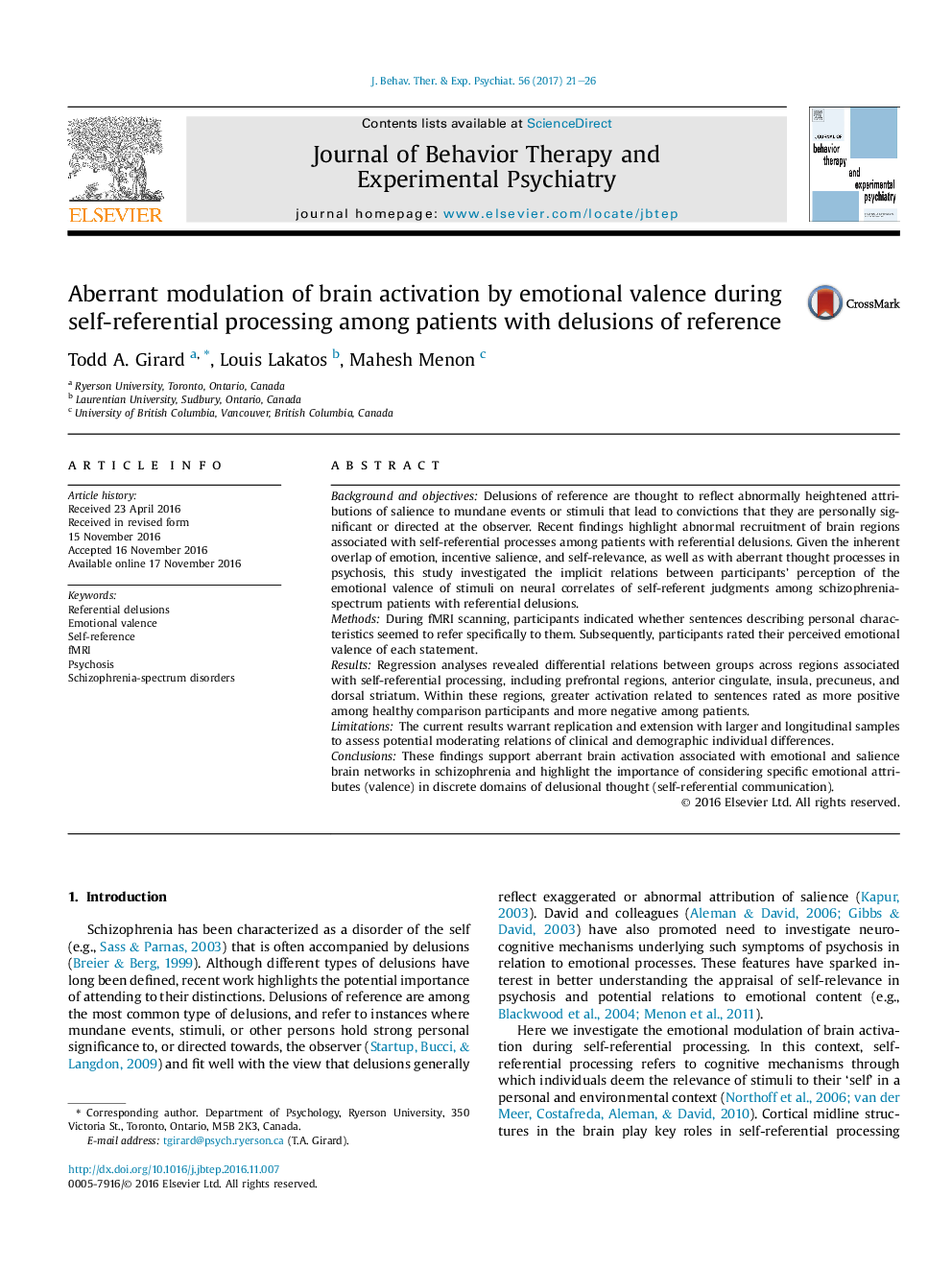| Article ID | Journal | Published Year | Pages | File Type |
|---|---|---|---|---|
| 5038980 | Journal of Behavior Therapy and Experimental Psychiatry | 2017 | 6 Pages |
â¢Referential delusions are associated with aberrant self-referential processing.â¢We investigate the relation of emotional valence to self-referential brain activity.â¢Healthy participants revealed positive correlations between these variables.â¢Patients demonstrated a lack or opposite relations across relevant brain regions.â¢Emotional valence is an important factor related to delusional thought processes.
Background and objectivesDelusions of reference are thought to reflect abnormally heightened attributions of salience to mundane events or stimuli that lead to convictions that they are personally significant or directed at the observer. Recent findings highlight abnormal recruitment of brain regions associated with self-referential processes among patients with referential delusions. Given the inherent overlap of emotion, incentive salience, and self-relevance, as well as with aberrant thought processes in psychosis, this study investigated the implicit relations between participants' perception of the emotional valence of stimuli on neural correlates of self-referent judgments among schizophrenia-spectrum patients with referential delusions.MethodsDuring fMRI scanning, participants indicated whether sentences describing personal characteristics seemed to refer specifically to them. Subsequently, participants rated their perceived emotional valence of each statement.ResultsRegression analyses revealed differential relations between groups across regions associated with self-referential processing, including prefrontal regions, anterior cingulate, insula, precuneus, and dorsal striatum. Within these regions, greater activation related to sentences rated as more positive among healthy comparison participants and more negative among patients.LimitationsThe current results warrant replication and extension with larger and longitudinal samples to assess potential moderating relations of clinical and demographic individual differences.ConclusionsThese findings support aberrant brain activation associated with emotional and salience brain networks in schizophrenia and highlight the importance of considering specific emotional attributes (valence) in discrete domains of delusional thought (self-referential communication).
